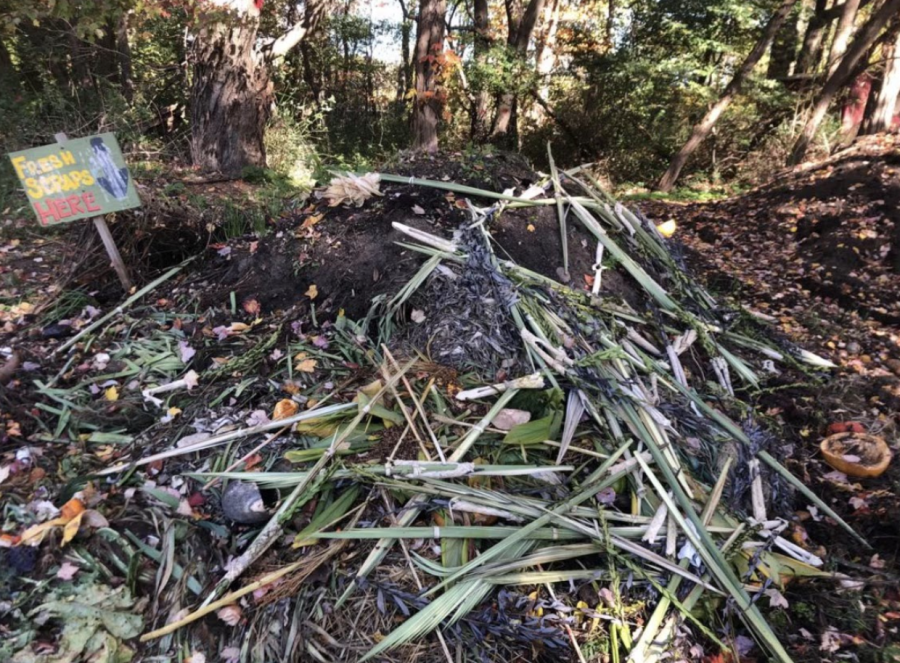Environmental Club Returns with Luv Your Lulav Drive
After the holiday of Sukkot, many people abandon their lulavim and etrogim by throwing them out in the trash. In an effort to reduce the waste this creates, the Environmental Club holds an annual lulav collection. Instead of throwing out the lulavim, the Environmtneal Club arranges for them to be composted. This past Sukkot, the club announced to the school that there would be bins in the lobby to collect the lulavim. This drive has been named the “Luv Your Lulav Drive” and was started by Samantha Sinensky ʼ20 three years ago.
This year, the Environmental Club collected lulavim from all three Ramaz buildings, KJ, Lincoln Square Synagogue, the Jewish Center of Atlantic Beach, and three other synagogues on the Upper East Side. This year’s drive was the biggest one yet, with hundreds of lulavim collected.
After the collection, the lulavim and etrogim are given to Ms. Barbara Abramson, the club’s faculty advisor, who brings them to various sites to be composted. The lulavim usually go to the Lower East Side Ecology Center, which has a compost center and allows people to bring their waste there instead of throwing it out. They are also brought to local green markets. This year, Ms. Abramson brought some of the lulavim to be composted at Restoration Farm. Restoration Farm is a farm stand in Bethpage, New York that takes waste to compost on their farm.
Ms. Abramson is an advocate for composting and cutting down on waste and enjoys helping out with the drive every year. She emphasizes the importance of making sure that the lulavim do not go to waste. “If we don’t compost then [the plants go] in the garbage, and our objective is to eliminate as much as possible and give back to the Earth. We have these Lulavs that are collected and taken from nature, so they should go back to nature,” said Ms. Abramson.
While the drive typically collects lulavim and etrogim, there were some complications with composting etrogim this year due to this year being the Shmita year in Israel. If the etrogim are grown in Israel, they are not allowed to be composted until they rot and are deemed no longer edible. Therefore, the etrogim from Israel will be stored in Ramaz until they can be composted without religious ramifications.
Student leader of the Environmental Club, Andrew Spielfogel ʼ23, believes the Lulav Drive gives students an easy way to give back to the environment and raises awareness about how to cut down on waste. Spielfogel ʼ23 views the drive from a religious standpoint as well: “The drive relates to Judaism too, because in Judaism, we really care about the environment. We should give back to the Earth that was made for us. These lulavim are able to be composted, not easily, but they can be.”
Daniela Woldenberg ʼ23 who leads the environmental club alongside Spielfogel ʼ23 also highlighted the mitzvah of composting lulavim as opposed to throwing them out: “With this project, we are contributing to Tikkun Olam. We know from many stories in the Tanakh that cultivating the land is important and a way to interact with G-d. By composting these lulavim, we are giving back to the land and showing our love for G-d and appreciation for what He has given to us.” As for upcoming projects, the environmental club hopes to create more opportunities for composting in the school, such as composting some of the waste from the lunchroom.



